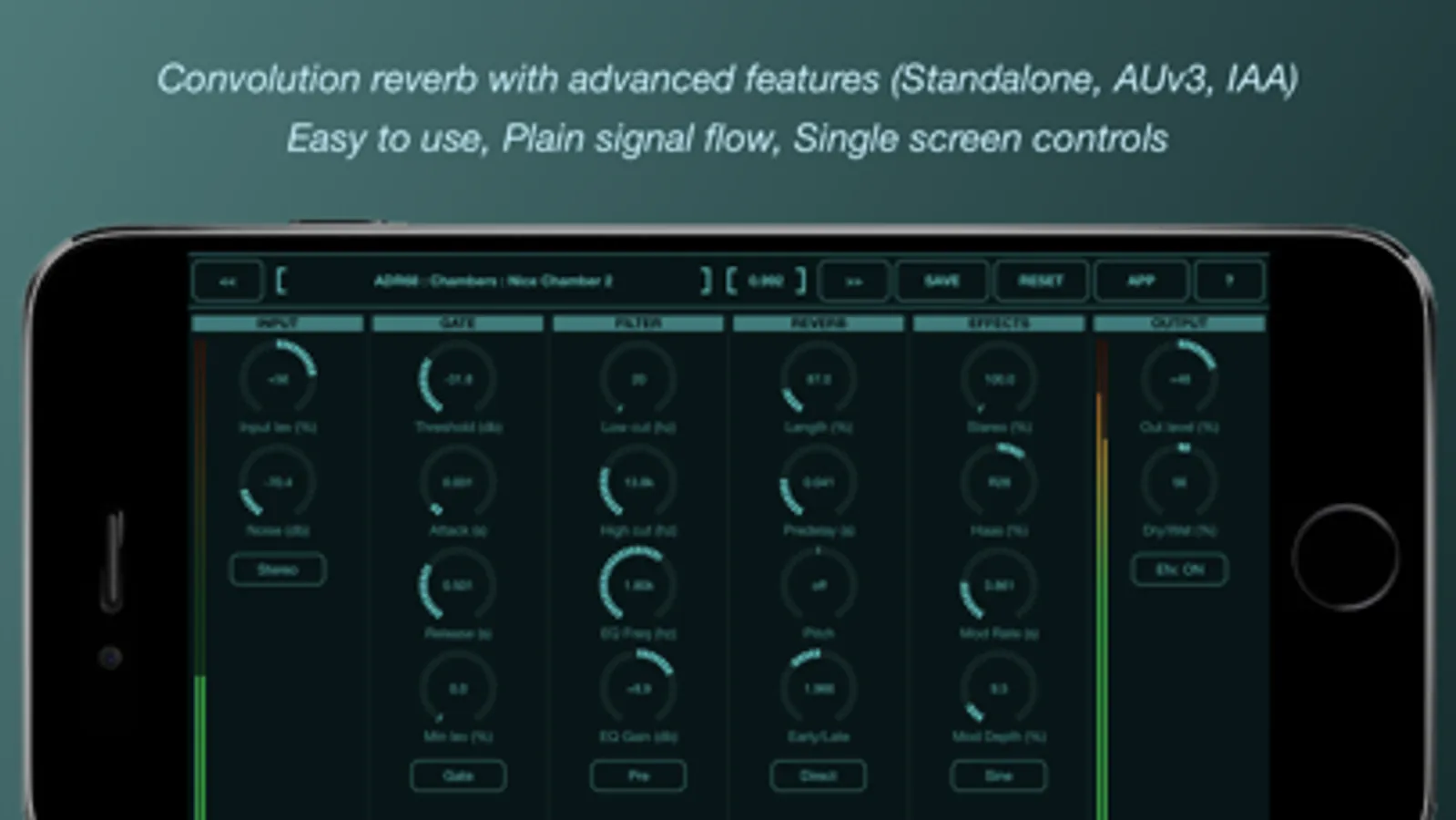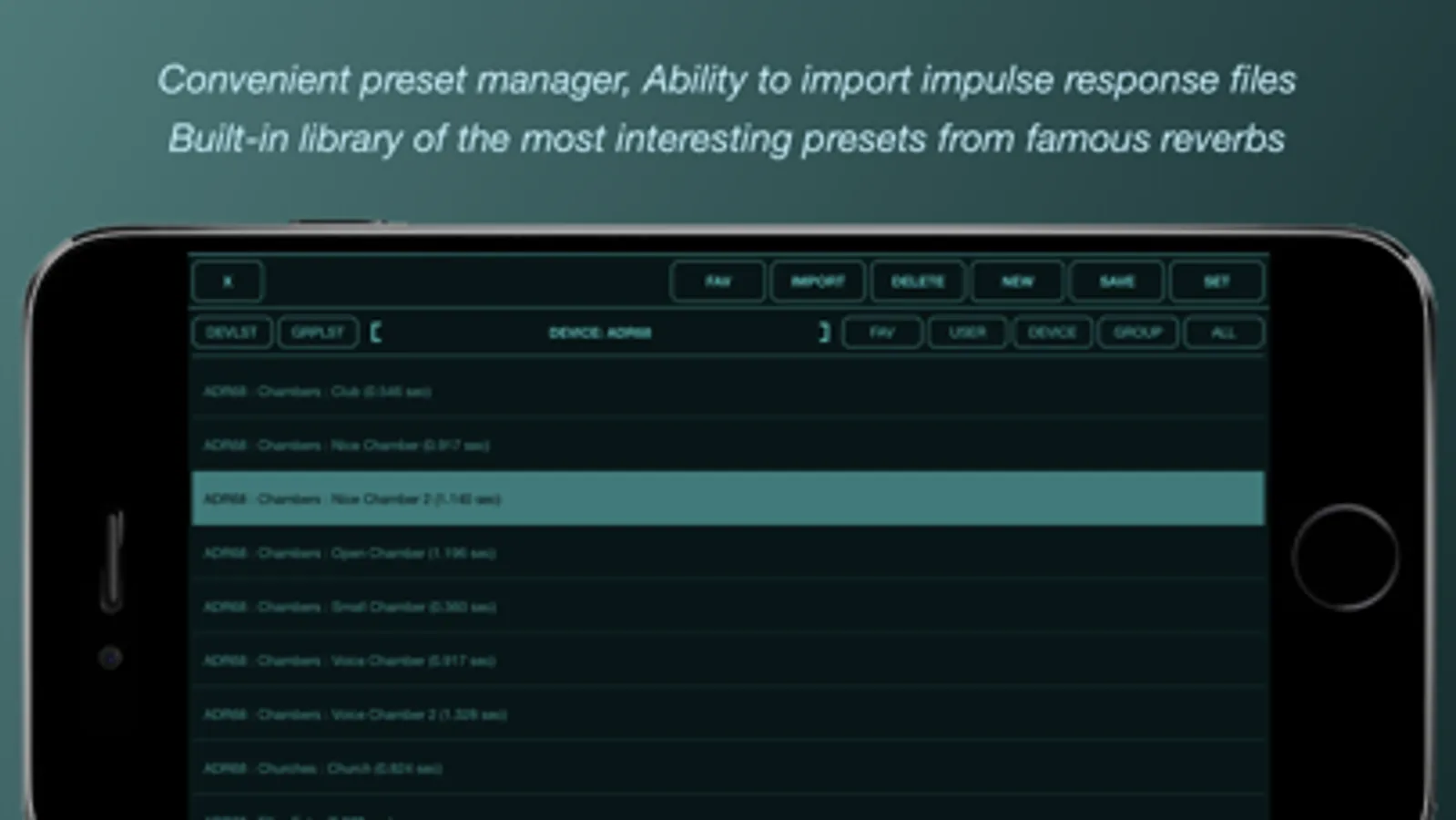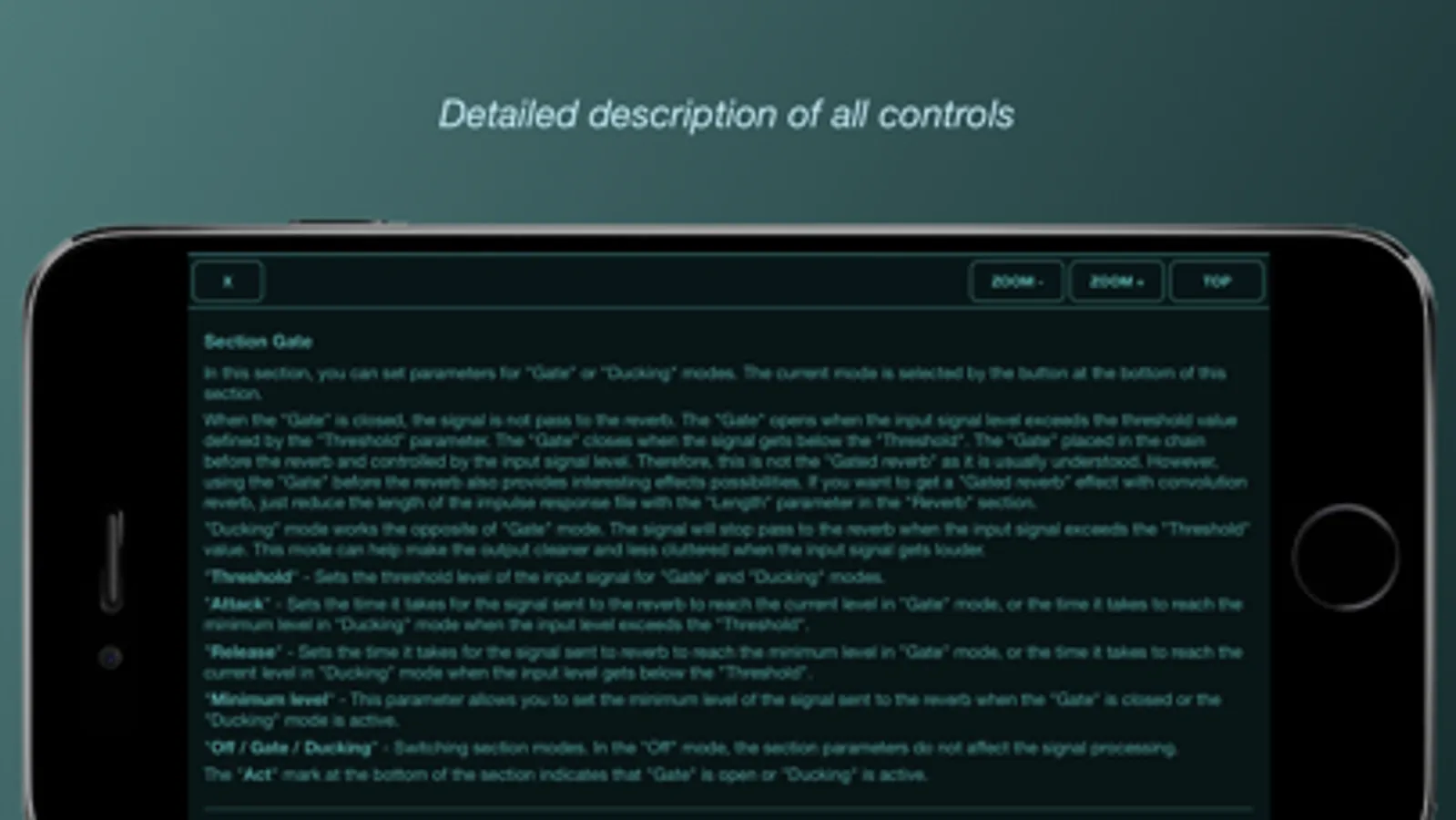In this convolution reverb app, you can apply realistic acoustic space or vintage reverbs to your tracks using advanced controls. Includes impulse response import, built-in preset library, and MIDI support.
AppRecs review analysis
AppRecs rating 5.0. Trustworthiness 75 out of 100. Review manipulation risk 27 out of 100. Based on a review sample analyzed.
★★★★★
5.0
AppRecs Rating
Ratings breakdown
5 star
81%
4 star
11%
3 star
4%
2 star
4%
1 star
0%
What to know
✓
Low review manipulation risk
27% review manipulation risk
✓
Credible reviews
75% trustworthiness score from analyzed reviews
✓
High user satisfaction
81% of sampled ratings are 5 stars
About AltiSpace 2
AltiSpace is a convolution reverb app with advanced controls that provides realistic sounding natural acoustic space or the most famous reverb devices for any track or mix.
A convolution reverb takes a captured sample (called an impulse response) from a real-world space or hardware and uses this to digitally simulate the reverberation of that space or device down to the last detail and nuance. Because it is sampled, not synthesized, convolution reverb is known for its stunning realism, and it is widely considered to be the best type of reverb. However, unlike the more common algorithmic reverbs, convolution reverbs usually does not have much control over the reverberation process.
But AltiSpace, in addition to the ability to load your own impulse response files and a built-in library of real reverb device presets, has advanced settings such as EQ, gate, ducking, modulation and more. You can change the original impulse response parameters to something completely new and then save it as a new preset.
This app has an easy-to-use user interface, where all the main controls are located on the single screen, and it is ready to use right out of the box, even without additional settings. And at the same time, you can easily change the parameters of the impulse responses from the built-in library to create your own sound.
App features:
Ability to import your own impulse response files.
A large built-in library of presets from the most famous hardware reverbs.
Convenient preset manager with the ability to group and search presets.
Presets can be marked as favorites for display in the favorites group.
Supports MIDI controllers (also Bluetooth) with learn or manually assign mode.
Reverb can work with a stereo or mono input and convert it to stereo.
Add dynamic noise before reverb for a more natural sound.
The gate allows you to turn on the reverb when the threshold is exceeded.
The ducking allows you to turn off the reverb when the threshold is exceeded.
Sets the minimum reverb level for Gate and Ducking modes.
Equalizer with high and low cut filters in chain before or after reverb.
Changing the time (length) of the current impulse response.
Possibility to set a fade out point for a smooth end of the impulse response.
Sets the pre-delay time of the signal before reverb.
Experimental feature to change the pitch of the impulse response.
Amplifying early or late reflections.
Adjusts the stereo image before the reverb.
Haas effect for adding stereo space to a mono signal.
Sets the depth and frequency of modulation the signal before reverb.
Mixing dry / wet signal and adjusting the output level.
Four-channel mode for better stereo ambience.
Input and output level meters.
Indicators of possible input clipping for standalone.
Prevents any output clipping for standalone.
Built-in full description of all controls.
Demo:
https://www.youtube.com/watch?v=WBHxgjkGCoU
https://www.youtube.com/watch?v=GLNi9wHaGew
https://www.youtube.com/watch?v=A3RPopor9gI
AltiSpace is a universal application for iOS and macOS. It can work on iPhone and iPad as well as Mac / MacBook with M1 chip (and later). AltiSpace works on iPhone and iPad standalone, as an Audio Unit or Inter-App Audio module, and supports Audiobus. On MacOS, AltiSpace can works both as a standalone application and as an Audio unit (AUv3) with DAWs and other hosts that support AUv3 plugins. AltiSpace has a built-in detailed description of all parameters also available as PDF file on the application site.
You can find more information on AltiSpace and other creative audio apps at:
https://motion-soundscape.blogspot.com
A convolution reverb takes a captured sample (called an impulse response) from a real-world space or hardware and uses this to digitally simulate the reverberation of that space or device down to the last detail and nuance. Because it is sampled, not synthesized, convolution reverb is known for its stunning realism, and it is widely considered to be the best type of reverb. However, unlike the more common algorithmic reverbs, convolution reverbs usually does not have much control over the reverberation process.
But AltiSpace, in addition to the ability to load your own impulse response files and a built-in library of real reverb device presets, has advanced settings such as EQ, gate, ducking, modulation and more. You can change the original impulse response parameters to something completely new and then save it as a new preset.
This app has an easy-to-use user interface, where all the main controls are located on the single screen, and it is ready to use right out of the box, even without additional settings. And at the same time, you can easily change the parameters of the impulse responses from the built-in library to create your own sound.
App features:
Ability to import your own impulse response files.
A large built-in library of presets from the most famous hardware reverbs.
Convenient preset manager with the ability to group and search presets.
Presets can be marked as favorites for display in the favorites group.
Supports MIDI controllers (also Bluetooth) with learn or manually assign mode.
Reverb can work with a stereo or mono input and convert it to stereo.
Add dynamic noise before reverb for a more natural sound.
The gate allows you to turn on the reverb when the threshold is exceeded.
The ducking allows you to turn off the reverb when the threshold is exceeded.
Sets the minimum reverb level for Gate and Ducking modes.
Equalizer with high and low cut filters in chain before or after reverb.
Changing the time (length) of the current impulse response.
Possibility to set a fade out point for a smooth end of the impulse response.
Sets the pre-delay time of the signal before reverb.
Experimental feature to change the pitch of the impulse response.
Amplifying early or late reflections.
Adjusts the stereo image before the reverb.
Haas effect for adding stereo space to a mono signal.
Sets the depth and frequency of modulation the signal before reverb.
Mixing dry / wet signal and adjusting the output level.
Four-channel mode for better stereo ambience.
Input and output level meters.
Indicators of possible input clipping for standalone.
Prevents any output clipping for standalone.
Built-in full description of all controls.
Demo:
https://www.youtube.com/watch?v=WBHxgjkGCoU
https://www.youtube.com/watch?v=GLNi9wHaGew
https://www.youtube.com/watch?v=A3RPopor9gI
AltiSpace is a universal application for iOS and macOS. It can work on iPhone and iPad as well as Mac / MacBook with M1 chip (and later). AltiSpace works on iPhone and iPad standalone, as an Audio Unit or Inter-App Audio module, and supports Audiobus. On MacOS, AltiSpace can works both as a standalone application and as an Audio unit (AUv3) with DAWs and other hosts that support AUv3 plugins. AltiSpace has a built-in detailed description of all parameters also available as PDF file on the application site.
You can find more information on AltiSpace and other creative audio apps at:
https://motion-soundscape.blogspot.com


